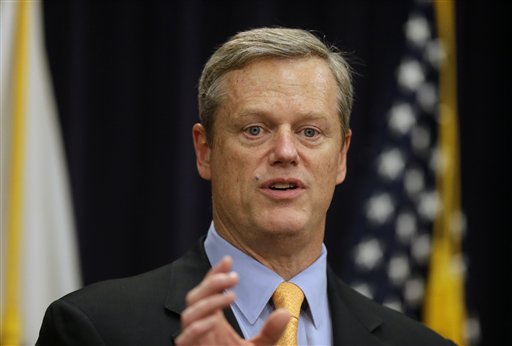BOSTON (AP) — Forty Massachusetts communities, including Westfield, are receiving state funds to help stockpile supplies of a drug that can counter opioid overdoses.
Republican Gov. Charlie Baker’s administration on Wednesday announced the $700,000 in grants that will go to many of the state’s larger cities, along with smaller communities that have averaged four or more opioid overdose deaths in recent years.
Police and fire departments can use the money to purchase naloxone, also known by the brand name Narcan, which if administered promptly can reverse the effects of an overdose.
The state last year created a bulk purchasing fund to help make it cheaper for municipalities to access Narcan.
Baker says the grants will help save lives. Massachusetts recorded at least 1,089 overdose deaths in 2014. Full-year statistics for 2015 aren’t yet available.
“This grant will help save more lives as our administration continues to pursue new and wide-ranging tools to combat the opioid epidemic, including the ability for medical personnel to intervene with those who have overdosed,” said Baker. “We look forward to continuing to work with the legislature to pass meaningful reforms, and are pleased to support our first responders’ access to immediate, life-saving resources.”
“Today’s announcement, along with the creation of the bulk purchasing fund, will increase the amount of naloxone available in hot-spot communities where it is needed most,” said Lt. Governor Karyn Polito yesterday. “These resources will help ease the costs of medication, enabling our firefighters and police officers to save more lives.”
Grants for $10,000 to $50,000 are being awarded to the following communities:
Attleboro, Barnstable, Beverly, Boston, Brockton, Chelsea, Chicopee, Everett, Fall River, Falmouth, Fitchburg, Framingham, Haverhill, Holyoke, Lawrence, Leominster, Lowell, Lynn, Malden, Medford, New Bedford, North Attleboro, Peabody, Pittsfield, Plymouth, Quincy, Revere, Salem, Saugus, Somerville, Springfield, Stoughton, Taunton, Waltham, Wareham, Westfield, Weymouth, Winthrop, Woburn, Worcester
“There is no faster and more effective way to reverse an opioid overdose than to administer naloxone,” said Health and Human Services Secretary Marylou Sudders.“It is imperative we do everything we can to counteract the epidemic of opioid addiction by providing as many first responders as possible the opportunity to use this life-saving medication.”
“The use of naloxone is one of our state’s greatest success stories in the fight against the opioid epidemic,” said DPH Commissioner Monica Bharel. “This funding will allow more first responders in our hardest hit communities to have access to this safe, life-saving drug.”
Only municipalities that met the following criteria were eligible to apply:
- an average annual rate of 6.0 and above of unintentional/undetermined opioid overdose deaths per 100,000 and
- an average annual count of unintentional/undetermined opioid overdose deaths of 4.0 and above (2009-2013).
The award amounts were calculated by taking the total allocation ($700,000) and dividing it among the applicants based on the population of the municipality.
A full update on the Governor’s Opioid Working Group’s progress can be found at:www.mass.gov/statewithoutstigma.


